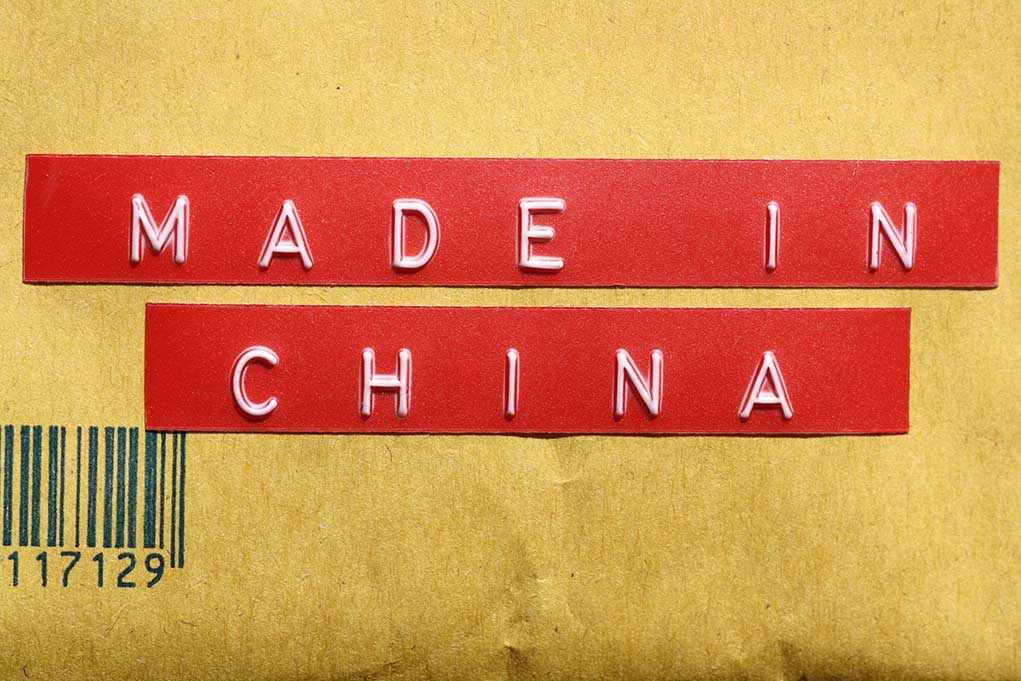
The Trump administration has delivered a crushing blow to China’s forced labor supply chains, expanding import bans to include steel, lithium, and other critical materials worth billions in blocked shipments.
Story Highlights
- DHS designates five new Chinese product categories as high priority for forced labor inspections under UFLPA
- CBP has already stopped 16,700 shipments worth $3.7 billion since the act’s implementation
- Steel, copper, lithium, caustic soda, and red dates now face intensified scrutiny at U.S. borders
- Secretary Kristi Noem declares war on Chinese slave labor practices threatening American prosperity
Trump Administration Strikes at China’s Forced Labor Empire
The Department of Homeland Security announced on August 19, 2025, that five new Chinese product categories will face heightened forced labor inspections under the Uyghur Forced Labor Prevention Act. Steel, copper, lithium, caustic soda, and red dates from China now join the growing list of materials subject to the strictest import scrutiny in U.S. history. This expansion represents the Trump administration’s most aggressive stance yet against China’s systematic exploitation of Uyghur minorities and other oppressed groups in Xinjiang.
DHS Secretary Kristi Noem delivered an uncompromising message that resonates with American values of human dignity and economic security. “The use of slave labor is repulsive, and we will hold Chinese companies accountable for abuses and eliminate threats its forced labor practices pose to our prosperity,” Noem declared. This statement reflects the administration’s commitment to protecting both human rights and American economic interests from China’s predatory trade practices.
Massive Financial Impact on Chinese Export Machine
The enforcement statistics reveal the unprecedented scope of this crackdown on Chinese forced labor. As of August 1, 2025, Customs and Border Protection has intercepted 16,700 shipments valued at $3.7 billion for UFLPA review since the law’s enactment in 2022. Approximately 10,000 of these shipments, worth $900 million, have been permanently denied entry into the United States. These numbers demonstrate the administration’s resolve to prioritize American values over cheap Chinese goods produced through human exploitation.
The targeted materials strike at the heart of China’s strategic economic leverage over global supply chains. Lithium powers batteries essential for electric vehicles and renewable energy storage, while copper and steel form the backbone of American infrastructure and manufacturing. Caustic soda supports numerous industrial processes, and even agricultural products like red dates face scrutiny, showing the comprehensive nature of this enforcement expansion.
Strategic De-Risking from Chinese Dependency
This enforcement expansion aligns perfectly with broader American efforts to reduce dangerous dependency on Chinese critical materials. China has historically dominated production of lithium, steel, copper, and industrial chemicals, creating vulnerabilities that threaten both national security and economic stability. The UFLPA’s “rebuttable presumption” standard places the burden of proof squarely on importers, forcing them to demonstrate beyond doubt that their products are free from forced labor.
The Trump administration’s approach recognizes that economic security and human rights are inseparable issues. By targeting these critical materials, the policy simultaneously protects oppressed workers in China while encouraging American businesses to develop alternative supply chains that don’t rely on authoritarian regimes. This strategic de-risking strengthens America’s economic independence while upholding the moral principles that distinguish our nation from Communist China’s brutal system.
Enhanced Enforcement Tools Target Supply Chain Transparency
CBP has deployed sophisticated new enforcement mechanisms to identify and block forced labor products more effectively. The Forced Labor Allegations Portal, launched on June 20, 2025, enables businesses and advocates to report suspected violations directly to authorities. This digital infrastructure represents a significant upgrade in America’s ability to track and intercept goods produced through human exploitation, giving patriotic Americans tools to help protect both workers and consumers.
The enforcement expansion reflects lessons learned from previous successes in combating Chinese forced labor schemes. CBP previously targeted North Korean false eyelashes relabeled as “Made in China,” demonstrating the administration’s commitment to stopping deceptive practices regardless of their complexity. This comprehensive approach ensures that Chinese manufacturers cannot simply rebrand or reroute their forced labor products to evade American justice and moral standards.
Sources:
DHS expands forced labor import ban to steel, lithium, blocks billions Chinese goods
The Fight Against Forced Labor: Enforcement, Policy, and Global Supply Chains in 2025
CBP Announces Forced Labor Allegations Portal Rollout
CBP Forced Labor Issue Paper – March 2025











